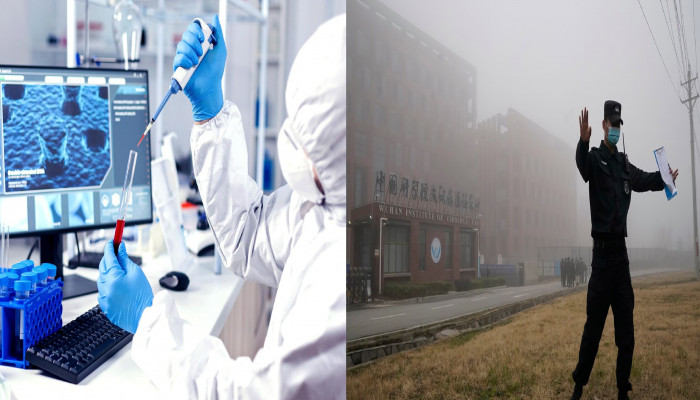CIA suspects lab origin for COVID-19, lacks confidence in confirming findings
- In Reports
- 02:40 PM, Jan 27, 2025
- Myind Staff
In an assessment issued Saturday, the CIA said it now believes the virus that caused the COVID-19 outbreak most likely came from a laboratory, blaming China while admitting that it is not entirely certain in its own assessment.
The assessment was conducted at the behest of former CIA Director William Burns and the Biden administration, and the conclusion is not a result of any fresh intelligence. On the directive of John Ratcliffe, the newly appointed director by President Donald Trump and sworn in Thursday, it was declassified and made public on Saturday. The agency's conclusion suggests that, based on all the available evidence, a lab origin seems more likely than a natural one. However, the agency has low confidence in this conclusion, indicating that the evidence is either lacking, unclear, or conflicting.
Earlier reports about the origins of COVID-19 have been divided on whether the virus accidentally leaked from a Chinese lab or if it developed naturally. The new findings are unlikely to end the debate. Intelligence officials believe the issue may never be fully resolved because Chinese authorities have not cooperated. In a statement regarding its latest assessment, the CIA stated that it "continues to assess that both research-related and natural origin scenarios of the COVID-19 pandemic remain plausible." The finding was based on new intelligence studies of the virus's scientific characteristics, its spread, and the operations and circumstances of China's virology labs rather than on new evidence.
Lawmakers have been urging U.S. intelligence agencies to provide more details about the origins of the virus that caused global lockdowns, economic disruptions, and millions of deaths. This remains an important issue with serious domestic and international consequences as the world continues to deal with the aftermath of the pandemic. Republican Senator Tom Cotton of Arkansas, who leads the Senate Intelligence Committee, expressed approval on Saturday that the CIA concluded in the final days of the Biden administration that the lab leak theory is the most likely explanation. He also praised former Director of National Intelligence John Ratcliffe for making the assessment public. Now, the most important thing is to make China pay for unleashing a plague on the world, Cotton said in a statement.
Chinese authorities have dismissed claims about the origins of COVID-19, calling them unhelpful and politically motivated. On Saturday, a spokesperson from China's U.S. embassy said the CIA's report on the matter lacks credibility. “We firmly oppose the politicisation and stigmatisation of the source of the virus, and once again call on everyone to respect science and stay away from conspiracy theories,” embassy spokesperson Liu Pengyu said in a statement emailed to The Associated Press.
The exact origin of the virus remains unknown, but scientists believe it likely came from bats, as many coronaviruses do. It is thought to have infected other animal species, such as raccoon dogs, civet cats, or bamboo rats, before spreading to humans. This likely occurred at a market in Wuhan, where the first human cases were reported in late November 2019.
Some investigations have suggested that the virus may have accidentally leaked from a lab in Wuhan. Two years ago, the U.S. Energy Department released a report stating that a lab leak was the most likely origin of the virus, although the report noted it had low confidence in this conclusion. Around the same time, FBI Director Christopher Wray said the agency believed the virus most likely spread after escaping from a lab.
John Ratcliffe, who was the director of national intelligence during President Trump’s term, has also supported the lab leak theory. In 2023, Ratcliffe stated that the lab leak explanation is the only theory backed by science, intelligence and common sense. The CIA stated that it will keep reviewing any new information that might affect its current assessment.







Comments